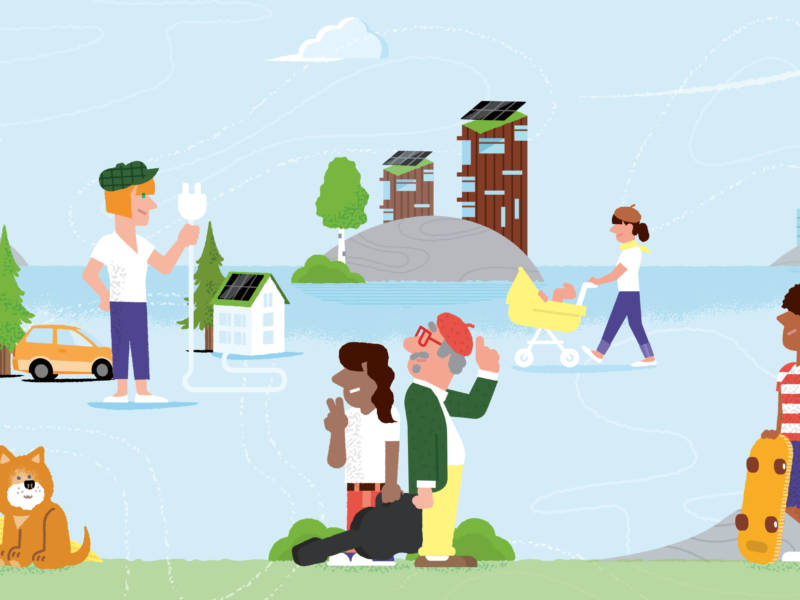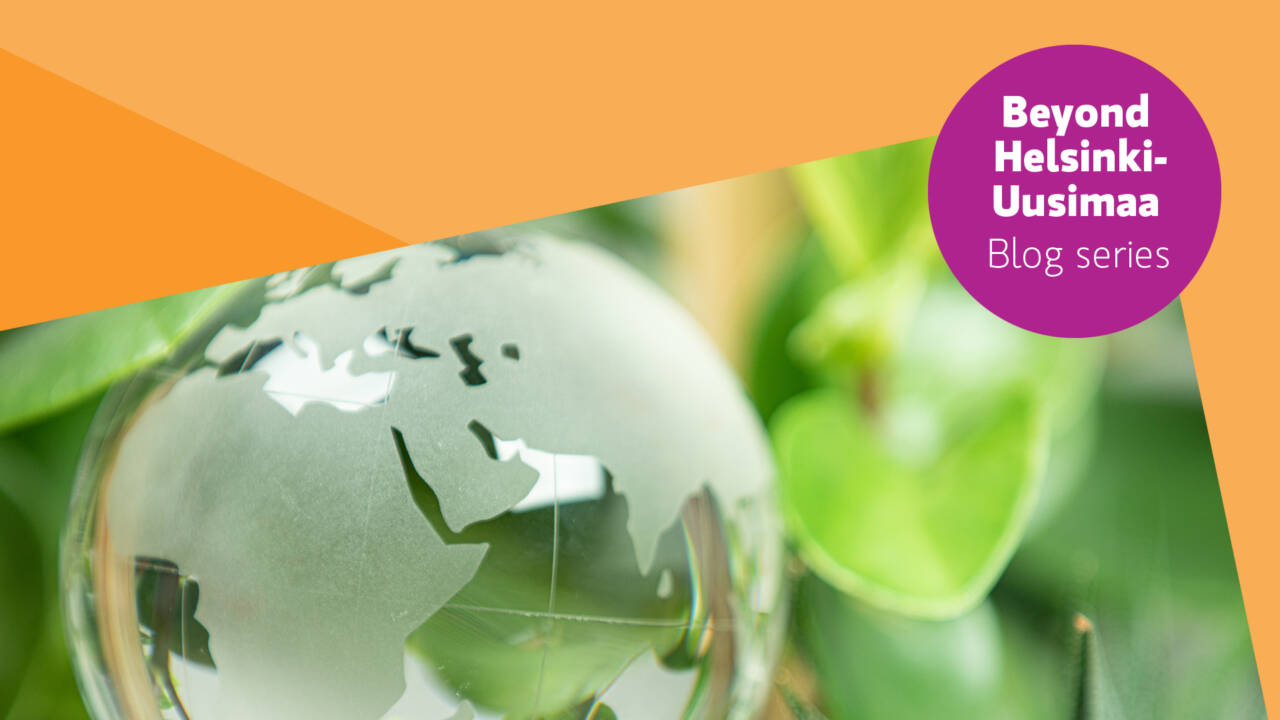
Helsinki-Uusimaa is aiming at climate neutrality by the year of 2030, in line with the forerunner municipalities of the region. The Helsinki-Uusimaa Regional Climate Road Map is the guideline for the climate work supporting our municipalities and other actors in the implementation of their mitigation goals.
Helsinki-Uusimaa is aiming at climate neutrality by the year of 2030.
Our urgent goal of climate neutrality calls for cooperation on a wide scale in all sectors; public, private and RDI, and that is done by furthering shared projects. The climate actions of our region are based on local strengths and the sharing of best practices.
Six climate spearheads in Helsinki-Uusimaa
Our Regional Climate Road Map includes six focus areas for climate change mitigation. These six spearheads have been chosen as the most vital and urgent themes for climate neutrality.
Five of our spearheads strive to mitigate climate change and to support a green transition. They represent the most important emissions sources of the region. The focus of mitigation lies on climate smart land use and construction, smart and emission-free mobility, fast and fair energy transition, climate neutral circular economy, together with sustainable consumption and production.
It is practically impossible to reach climate neutrality without carbon sequestration and compensating residual emissions. Therefore, the sixth spearhead of the roadmap aims to strengthen regional carbon sinks and storages, and to compensate for any residual emissions.

Finnish cities and municipalities are very autonomous and thus in a key position when it comes to enabling a climate neutral region. All large cities in our metropolitan region, as well as many smaller member municipalities already have action programmes of their own. However, reaching the ambitious goal naturally calls for international cooperative actions on our behalf, too.
Emissions in Helsinki-Uusimaa fallen by almost a third
In our quest for carbon neutrality in 2030, we use 2005 as the reference year. In recent years, we are pleased to see the emissions in the Helsinki-Uusimaa Region fallen by 28 %, and even by 39 % per capita. While our regional emissions account for 20 percent of the national ones, the emissions per capita are well below the national average and decrease more quickly.
Emissions from transport and heating dominate the emission profile of our region. In 2021, the total emissions of our region were 6,4 million tonnes CO2e, or 3,7 tonnes per capita.
The development of emissions in the region is followed up according to an annual national inventory by the Finnish Environment Institute.
Find out more

Helsinki-Uusimaa Regional Programme
The Helsinki-Uusimaa Regional Programme sets out our region’s vision for 2030 and outlines the development priorities, objectives and measures for 2022–2025. The vision is “Well Ahead”, and the Programme includes the key development guidelines and strategies from the global level to the municipal level.
For more information, please contact:

Pia Tynys
Sustainability Manager
Climate work in Helsinki-Uusimaa, green transition, climate roadmap: Carbon Neutral Helsinki-Uusimaa by 2030
Current
 News
News
22.4.2025
Helsinki-Uusimaa stresses the importance of innovation in EU’s Vision for Agriculture and Food
In February, the European Commission published its Vision for Agriculture and Food. The Helsinki-Uusimaa Regional Council wants to actively participate in the discussion on the guiding principles of the EU's future agricultural and food policy. In cooperation with the Helsinki EU Office and stakeholders, the Helsinki-Uusimaa Regional Council has prepared a position paper that brings together our Region’s views on the Commission's vision.
 Blog
Blog
28.3.2025
From Regional Innovation to Circular Diplomacy: why Europe’s Circular Future Depends on its Regions and Cities
The circular economy isn’t just a technical fix or environmental upgrade. It’s a strategic pathway to resilience, competitiveness, and sovereignty. And it is often regions and cities, working in collaboration with businesses, academia, and civil society, that are best positioned to facilitate this transition. Senior Adviser Christine Chang examies the role of regions and cities in the circular diplomacy.
This page was last updated: 24.2.2025


